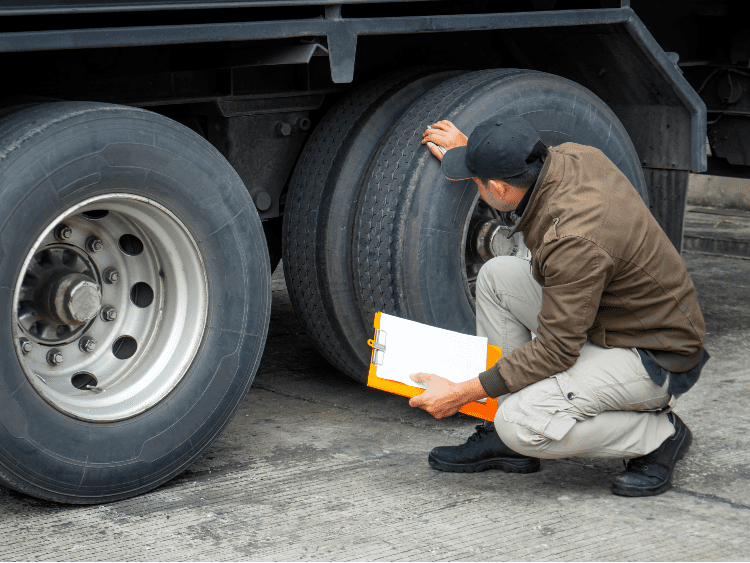How Mechanical Failure Affects a Truck Accident Claim
February 23, 2022
Get the Facts About Liability & Your Legal Options When Equipment Malfunctions Cause Wrecks
Vehicle equipment issues contribute to about 1 in every 10 tractor-trailer crashes. That’s occurring despite federal trucking regulations that require routine inspections while prohibiting unsafe and poorly maintained big rigs from being on the roads.
Whenever mechanical failures factor into truck wrecks, here is what victims need to know about their rights, the available legal remedies, and how to seek the justice they deserve.
3 Facts About Mechanical Failures & Truck Accident Claims
In many cases, the equipment problems that cause big rig wrecks are not obvious immediately after a crash. In fact, deep investigations may be needed to determine when mechanical failures have played a role in causing a crash. To shed more light on this issue, the following share three key facts to know about truck accident claims involving equipment problems.
1. Brake problems are the top mechanical issue that cause wrecks.
Brake failures are most often coded as the critical reason for causing 18-wheeler accidents, according to authorities. In fact:
- Each year, brake failures contribute to more than 41,000 truck wrecks.
- Although tire failures are the second most common mechanical issue that causes tractor-trailer wrecks, brake failure is five times more likely to occur than tire failure.
- When a trucker or a big rig is responsible for causing a crash, brake failures are more often a problem than any other error or impairment on the part of truckers. That includes intoxication, distraction, speeding, and illegal maneuvers by a truck driver.
A lack of tire tread marks on the road, along with data from electronic logging devices (ELDs), may help prove when wrecks involve brake failures.
2. Evidence of mechanical failures can come in many forms.
Depending on what fails, evidence of mechanical issues may include (and is by no means limited to):
- Police reports and/or accident scene photos
- Dashcam recordings and footage
- Big rig maintenance and repair records
- Eyewitness and/or expert witness statements
- Data from ELDs or electronic onboard recorders
- Equipment design, manufacturing, and/or safety test documentation
These and other items can start to reveal which equipment failed and what precisely caused the failure.
3. Mechanical failures often result from negligence.
Many mechanical problems result from failures to inspect and maintain equipment, but several are also caused by inherently flawed equipment resulting from unsafe design and/or manufacturing errors. In either case, equipment failures tend to involve some type of negligence, like (but not limited to):
- Driver negligence: Truckers who fail to inspect or repair 18-wheeler equipment can be liable if broken, worn, or damaged equipment that should be repaired ends up causing crashes.
- Motor carrier negligence: Trucking companies are responsible for maintaining safe big rigs and making the call to not put unsafe vehicles on the roads. If they fail to repair trucks but continue to operate them, these companies can be liable for tractor-trailer wrecks caused by their failures to maintain their fleet.
- Equipment manufacturer negligence: When flawed or faulty equipment is a factor in a truck accident, the companies that designed, manufactured, and/or distributed that dangerous equipment can among the liable parties.
- Other negligence: Overloading 18-wheelers and failing to properly balance cargo can overly stress trucking equipment and contribute to mechanical failures. So too can driver misbehaviors, like speeding and sudden braking. Additionally, poorly maintained roads can play a role in truck equipment failures, which could put cities, counties, or others in the hot seat if accidents happen and victims sue.
The Bottom Line
With mechanical failures and truck accident claims, the bottom line is that equipment problems can be complex and, in many cases, challenging to prove without the right evidence. When you only have one shot at justice and it’s time to determine or prove how mechanical issues caused a wreck, it’s time to contact an experienced truck wreck lawyer.
